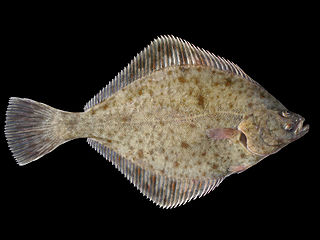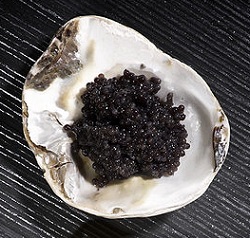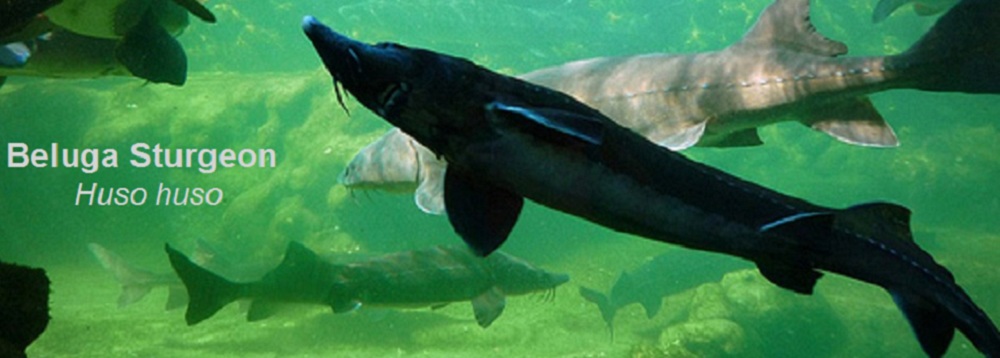Interactions
 Numerous other organisms interact with the
beluga sturgeon everyday. Due to the sturgeon being a fish and
living in a marine environment, the majority of these organisms
are fish. Due to the predatory lifestyle of H. huso,
the vast majority of its interactions with other organisms
is when the sturgeon is enjoying a meal. Some of these organisms
include the
Caspian roach,
the European flounder,
gobies,
haddock,
mullet,
herring gull, and
pickerel.
Numerous other organisms interact with the
beluga sturgeon everyday. Due to the sturgeon being a fish and
living in a marine environment, the majority of these organisms
are fish. Due to the predatory lifestyle of H. huso,
the vast majority of its interactions with other organisms
is when the sturgeon is enjoying a meal. Some of these organisms
include the
Caspian roach,
the European flounder,
gobies,
haddock,
mullet,
herring gull, and
pickerel.
Other organisms that live in the same aquatic habitat include
phytoplankton,
catfish, and
Persian sturgeon. These organisms exist in the same habitat
but also compete with one another for the various food sources
listed above. While phytoplankton and catfish have healthy and
full populations, the Persian sturgeon is in the same "boat" as
the beluga sturgeon. Both of these sturgeon are sought after for
their meat and for their caviar.
 The most influential species that interacts with Huso huso
is humans. Humans have led to an extreme decrease in the numbers
of sturgeon located in these areas and have ultimately led to
their critical endangerment. While the meat does hold the same
nutritional value as most any fish, the caviar serves almost no
nutritional value except for a large amount of cholesterol. The
meat may be a good source of several vitamins, but the
fish is also relatively fatty. Overall, the meat would probably
be a sustainable food source but the caviar would not.
The most influential species that interacts with Huso huso
is humans. Humans have led to an extreme decrease in the numbers
of sturgeon located in these areas and have ultimately led to
their critical endangerment. While the meat does hold the same
nutritional value as most any fish, the caviar serves almost no
nutritional value except for a large amount of cholesterol. The
meat may be a good source of several vitamins, but the
fish is also relatively fatty. Overall, the meat would probably
be a sustainable food source but the caviar would not.
To view more of the treats that humans pose on the beluga
sturgeon, click here.
To go back to the homepage, click here.
